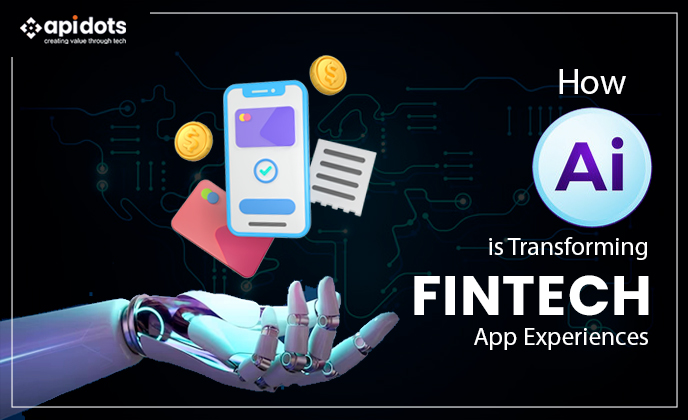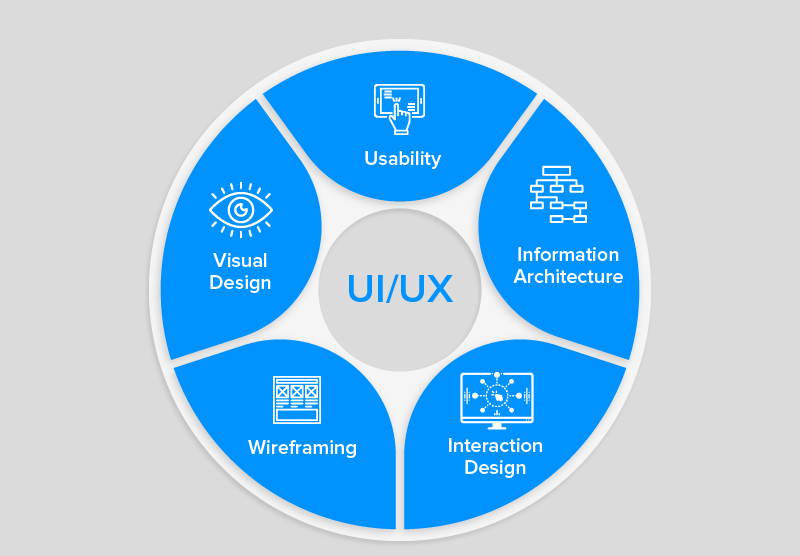Artificial intelligence (AI) has rapidly transformed various industries, and app development is no exception. As technology continues to advance, developers are turning to AI to streamline the app development process and create more efficient, user-friendly applications. In this article, we will explore the ways in which AI is revolutionizing app development, from automating tasks to enhancing user experiences, and examine the potential future implications of this groundbreaking technology.
Automation and Code Generation
- Automation and code generation are key components of how artificial intelligence is transforming app development.
- AI-powered tools can automate repetitive tasks such as coding, testing, and debugging, saving developers time and effort.
- Code generation tools can automatically create functional code based on high-level instructions provided by developers, reducing the need for manual coding.
- These tools also help in creating more efficient and error-free code, resulting in faster development cycles.
- By utilizing AI for automation and code generation, developers can focus on higher-level tasks such as designing user interfaces and crafting user experiences.
- Ultimately, this leads to accelerated app development processes and higher-quality applications overall.
To learn more about how AI is transforming app development, visit AnyAlpha’s E-commerce store Development Company in Texas.
Enhanced User Experience
Personalized Recommendations
- AI-powered algorithms analyze user preferences, behavior, and history to provide tailored product suggestions.
- Enhances user engagement and increases the likelihood of purchases.
Improved Search Functionality
- Machine learning enables more accurate and relevant search results.
- Users can find products faster, leading to higher satisfaction and conversion rates.
Chatbots for Customer Support
- AI chatbots offer 24/7 assistance, answering queries and resolving issues promptly.
- Enhances customer experience by providing instant support and improving response times.
For more information on how AI is transforming app development to enhance user experience, visit AnyAlpha’s E-commerce store development page.
Personalized Recommendations and Insights
One significant way artificial intelligence is transforming app development is through personalized recommendations and insights. AI algorithms analyze user behavior, preferences, and interactions within the app to provide tailored suggestions and insights to enhance user experience. These personalized recommendations can include product recommendations, content suggestions, personalized notifications, and more. By leveraging AI-powered recommendation engines, app developers can better engage users, increase user retention, and drive conversion rates.
Some key benefits of personalized recommendations and insights in app development include:
- Improved user experience
- Increased user engagement
- Higher conversion rates
- Enhanced customer satisfaction
To learn more about how personalized recommendations and insights can benefit your app development process, visit AnyAlpha’s website.
Improved Data Analysis and Insights
- With the integration of Artificial Intelligence in app development, data analysis and insights have been significantly enhanced.
- AI algorithms are able to process vast amounts of data in real-time, providing developers with actionable insights.
- These insights help developers understand user behavior, preferences, and trends more accurately.
- By leveraging AI capabilities, developers can make data-driven decisions to optimize user experience and app performance.
- AI-driven data analysis also enables developers to personalize app experiences for individual users, increasing user engagement and retention.
To learn more about how Artificial Intelligence is transforming app development in California, visit AnyAlpha.
Streamlined Testing and Debugging
One of the key ways artificial intelligence is transforming app development is through streamlined testing and debugging processes. AI-powered tools can help developers automate testing procedures, identify bugs more efficiently, and optimize debugging workflows. Here are some ways AI is improving the testing and debugging phase of app development:
- Automated Testing: AI algorithms can analyze code, predict potential bugs, and generate test cases automatically.
- Real-time Debugging: AI tools can provide real-time insights into code performance, helping developers identify and fix bugs quickly.
- Predictive Maintenance: AI can anticipate potential issues in an app’s codebase and suggest preventive measures before bugs occur.
By leveraging AI in testing and debugging, developers can speed up the development process, improve code quality, and deliver more reliable apps to users. To learn more about UI/UX design services, visit AnyAlpha.
Predictive Maintenance and Performance Optimization
Predictive maintenance leverages artificial intelligence to predict when a mobile application or system is likely to fail, helping developers take proactive measures to prevent downtime and ensure optimal performance. By analyzing historical data, AI algorithms can identify patterns and anomalies that indicate potential issues before they occur, allowing for timely maintenance and optimizations. This approach not only reduces the risk of unexpected failures but also minimizes the need for costly emergency repairs.
Key aspects of predictive maintenance and performance optimization include:
- Real-time monitoring and alerting systems
- Automated diagnostics and troubleshooting
- Predictive analytics for predicting equipment failures
- Continuous performance optimization algorithms
To learn more about how artificial intelligence is transforming app development, visit our website.
Natural Language Processing and Voice Recognition
Natural Language Processing (NLP) and Voice Recognition are crucial components in the transformation of app development through Artificial Intelligence. NLP enables apps to understand and interpret human language, allowing for features like chatbots, sentiment analysis, and text summarization. Voice Recognition, on the other hand, enables users to interact with apps using their voice, opening up possibilities for hands-free operation and accessibility.
Key aspects of NLP and Voice Recognition in app development include:
- Chatbots for customer support and service automation
- Voice-controlled virtual assistants like Siri and Alexa
- Sentiment analysis for understanding customer feedback
- Language translation and localization for global reach
To leverage the power of NLP and Voice Recognition in your app development project, contact AnyAlpha today.
Enhanced Security and Fraud Detection
Artificial Intelligence (AI) plays a crucial role in enhancing security measures and fraud detection within mobile apps. Here are some key ways AI transforms app development in this aspect:
-
Behavioral Analysis: AI algorithms analyze user behavior patterns to detect any anomalies or suspicious activities, thus preventing fraudulent transactions.
-
Biometric Authentication: AI-powered biometric recognition systems, such as facial or fingerprint recognition, add an extra layer of security to mobile apps.
-
Predictive Analytics: AI can predict potential security threats by analyzing vast amounts of data, enabling proactive measures to prevent fraud.
-
Real-time Monitoring: AI continuously monitors app activities in real-time, instantly flagging any irregularities or security breaches.
For more information on how AI is transforming app development, visit Anyalpha Mobile App Design Company.
Integration of AI Chatbots and Virtual Assistants
In the realm of app development, the integration of AI chatbots and virtual assistants has become increasingly prevalent. These intelligent bots are programmed to engage with users, provide information, assist with tasks, and more. Here are a few ways in which AI chatbots and virtual assistants are transforming the landscape of app development:
- Enhanced User Experience: AI chatbots and virtual assistants can offer personalized interactions, making the user experience more engaging and efficient.
- Improved Customer Support: These AI-powered tools can provide 24/7 support, answer queries, and address user concerns promptly.
- Efficient Task Automation: Chatbots and virtual assistants can automate repetitive tasks, saving time and resources for app developers.
To explore how AI is revolutionizing app development, visit AnyAlpha Mobile App Development in New York.
Scalability and Flexibility of AI-driven Apps
AI-driven apps offer unparalleled scalability and flexibility, allowing them to adapt to evolving user needs and accommodate increasing user bases. The integration of artificial intelligence enables apps to efficiently handle a growing volume of data and user interactions, ensuring seamless performance even as the application scales.
Key aspects of scalability and flexibility in AI-driven apps include:
- Efficient Processing: AI algorithms optimize resource utilization, enabling apps to handle larger workloads without compromising performance.
- Personalization: AI-driven apps can tailor user experiences based on individual preferences and behaviors, enhancing user engagement and satisfaction.
- Adaptability: AI algorithms continuously learn and evolve, enabling apps to adapt to changing trends and requirements in real-time.
For cutting-edge AI-driven app development services that prioritize scalability and flexibility, visit Anyalpha.
Conclusion
In conclusion, the integration of Artificial Intelligence into app development has brought about a significant transformation in the way applications are built and utilized. The automation and code generation capabilities of AI have streamlined the development process, while enhanced user experiences and personalized recommendations have made applications more user-friendly and engaging. Furthermore, improved data analysis and insights, streamlined testing and debugging, predictive maintenance, natural language processing, and voice recognition have collectively enhanced the performance and functionality of apps. Additionally, the integration of AI chatbots, virtual assistants, and enhanced security features have further improved the overall user experience. Lastly, the scalability and flexibility of AI-driven apps have opened up new possibilities for developers and users alike, making AI-driven apps the future of the app development industry.
Learn more about how artificial intelligence is transforming app development at https://DeltaWriter.com.

Director @Anyalpha, a Top Software Development Company offering Mobile App Development and Website Development Services to Businesses & Startups.


